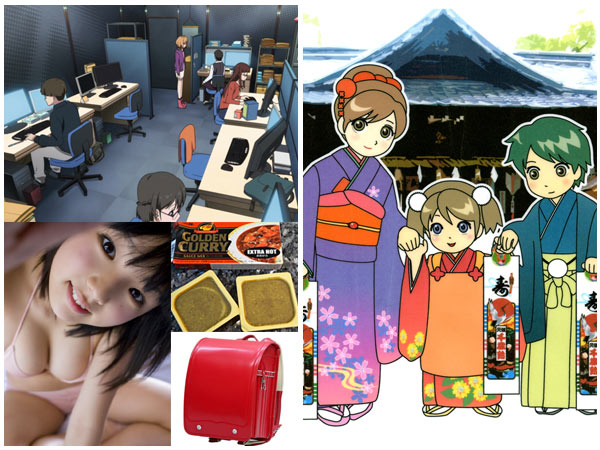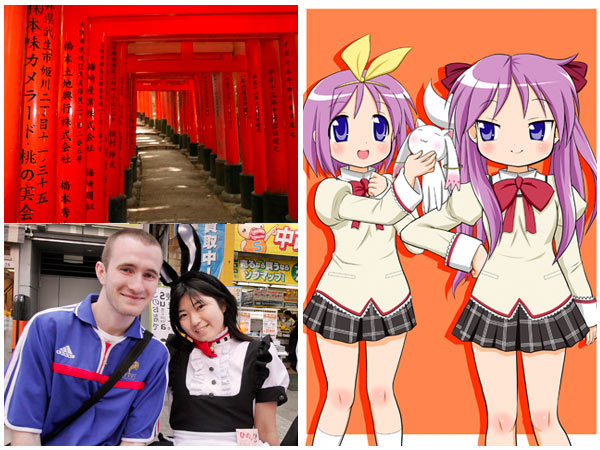
November is time for many things in Japan. It’s a time to enjoy 紅葉 koh-yoh, the crimson changing of the leaves, and for marveling at cute children dressed for their “7-5-3” (pronounced shichi-go-san) ceremony, a custom in which parents with sons or daughters age 3, sons age 5 or daughters age 7 will visit a professional photographer and have pictures of their kids taken wearing beautiful kimonos, then visit a Shinto shrine together. You can tell it’s November because every road suddenly becomes congested with traffic due to construction projects cities are rushing to finish by March, when the fiscal year changes. It’s also a time when you hear a lot of loud motorcycle gangs driving through the streets, making as much noise as they can. This is the boso-zoku (lit. “violent running tribe”), biker gangs that ride on motorcycles modified to be extra loud, who drive through city streets revving their engines and honking horns and waking people up mainly because they want to get attention from society at large, or something. Soon it will be too cold for them to go riding, so they’re getting all the pent-up energy out of their systems this month.
One of the benefits of living in Japan is that the Japanese use many loan words from English, which takes some of the pressure off when studying the language. The trouble is that not all foreign loan words come from English, though this doesn’t stop nearly every Japanese from trying to use them on English speakers freely. Words like グラビア (gravure, sexy bikini models like the wonderful Ai Shinozaki), アルバイト (arubaito, part time job), アンケート (ankeeto, questionnaire), ランドセル (randoderu, those cute Japanese school backpacks) and ルー (roux, squares of concentrated curry) are all common words used in Japan that native English speakers puzzle over when they encounter them. Sometimes the reasons why words come in from languages other than English are historical, like the way most medical terms were imported from German because the influence of that country was strong in the late 19th century, and other times the reasons are phonetic, for example the Japanese use the French word pierot for clown to avoid confusion with the English word “crown.” Other times it seems quite random, like the way the oil
myrrh, which is used in preserving mummies, came to be the Japanese word for mummy itself (ミイラ miira). Another interesting word that comes up in the anime industry a lot these days is クール kuuru, from the French cours, which has come to mean “one 12 week period.” Most anime series these days are 1クール wan kuuru or “one set of 12 episodes,” while higher budget shows like Steins;Gate are 2クール tsuu kuuru or 24 episodes.
We love finding rare and fun products from Japan for the Holiday season as much as our customers love buying them, but this year there’s a slight problem: the usual “Black Friday/Cyber Monday” weekend is one week later than in normal years, which shortens the time for J-List customers to receive their orders. Our solution? Start our big sale one week early! This year we’re really going big, with 10% off everything on the site if you buy $60 or more, or a whopping 18% off if your order total is $160 or more! (Doesn’t apply to certain items like iTunes cards or gift cards, grab bags or subscription items.) No coupon codes to enter, just enjoy the savings. This sale will end at the end of Monday, so get shopping now!
















